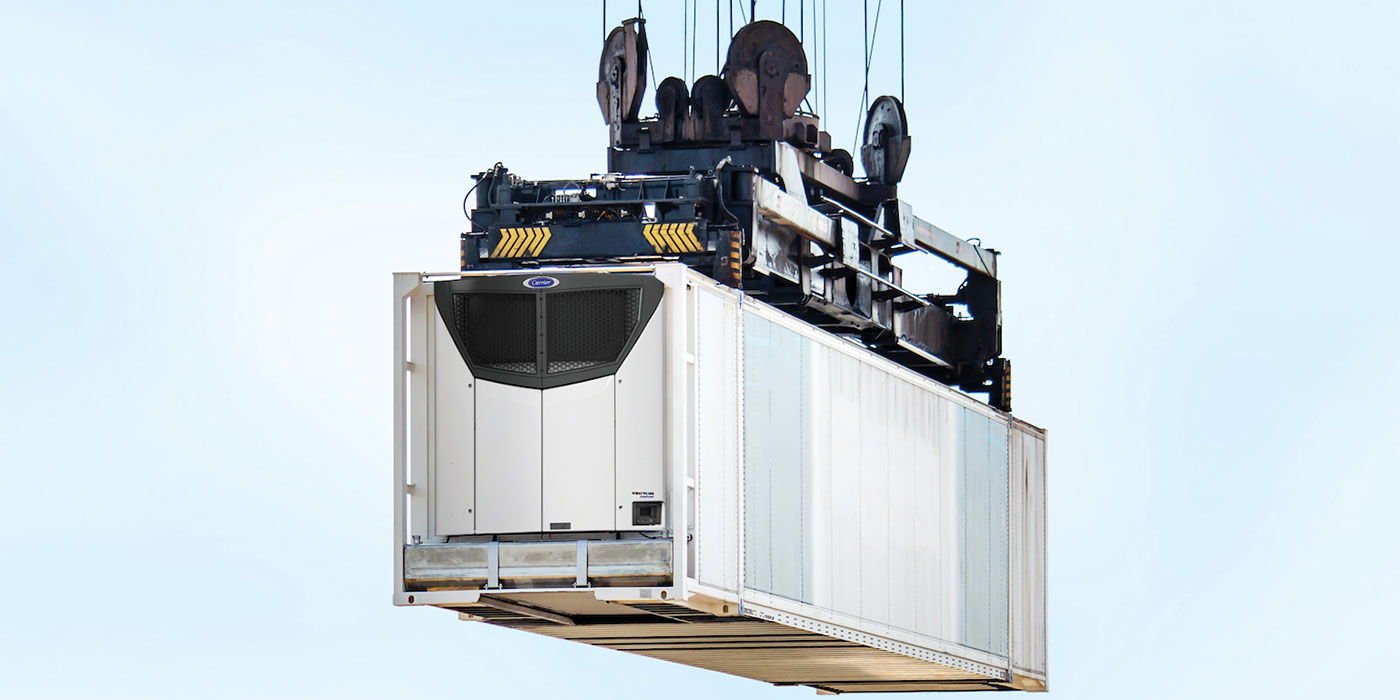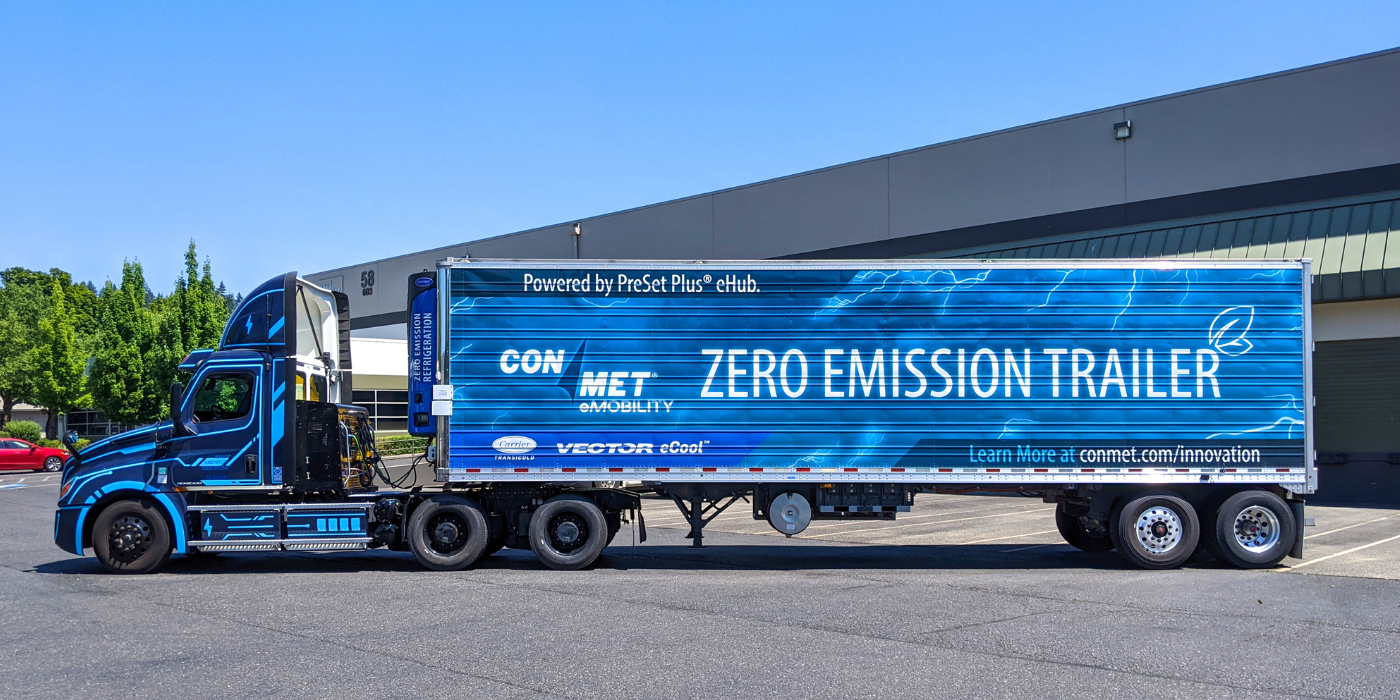Transport Refrigeration Units (TRU) are refrigeration systems powered by diesel internal combustion engines designed to refrigerate or heat perishable products that are transported in various containers, including semi-trailers, truck vans, shipping containers and rail cars. Although TRU engines are relatively small, ranging from nine to 36 HP, significant numbers of these engines congregate at distribution centers, truck stops and other facilities, resulting in the potential for health risks to those that live and work nearby. Since diesel particulate matter as been identified as a toxic air contaminant, the California Air Resources Board (CARB) adopted an Airborne Toxic Control Measure (ATCM) for TRUs and TRU generator sets on Feb. 26, 2004. More information about this rulemaking is at: 2004 TRU ATCM Rulemaking. Key terms: transport refrigeration unit, TRU genset, reefer, refrigerated truck, refrigerated trailer, refrigerated railcar, refrigerated shipping container.
The purpose of CARB regulation is to use a phased approach over about 15 years to reduce the diesel particulate matter emissions from in-use TRU engines that operate in California.
Those affected are owners and operators of in-use diesel fueled TRUs that operate in California, irrespective of whether they are registered in or outside of the state, including all carriers that transport perishable goods using diesel-powered refrigeration systems on trucks, semi trailers, shipping containers and railcars that operate in California. The basic requirements must meet in-use performance standards that were phased in and started Dec. 31, 2008.
CARB equipment standards
The current compliant schedule on all TRUs states that Dec. 31 of the engine model year plus seven years after that are acceptable to meet the low emission standard. Owners that operate TRUs that are non-compliant are faced with strict fines and possible operation shutdowns.
Implications of CARB laws
Times are changing in the semi trailer industry, and new regulations, for better or for worse, will bring new challenges for companies that must be addressed. Fleets that run refrigerated vans and trucks are relying on the manufacturers of those units to provide the products and information they need to be compliant. Contact your suppliers for more information. In addition, there are detailed guidelines for compliance assistance titled “How Do I Comply with the TRU ATCM?” which can be accessed at: www.arb.ca.gov/diesel/tru/tru.htm.



